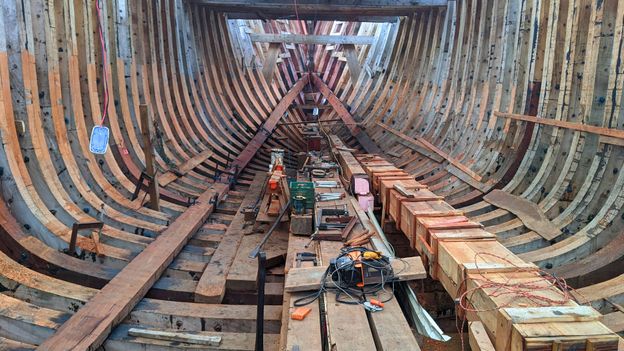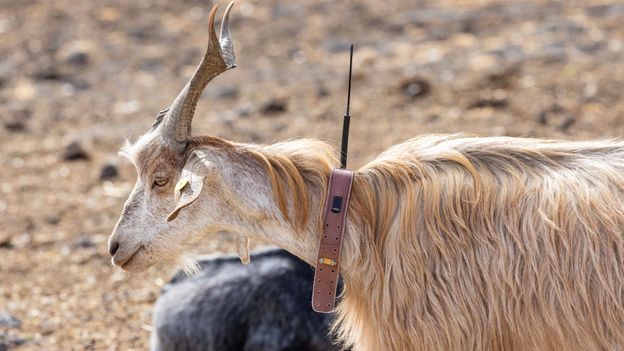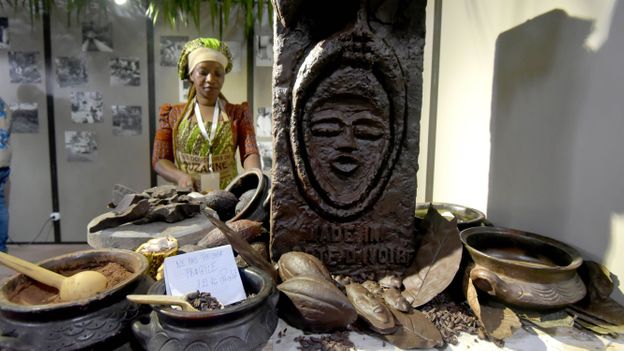Walking around the shipyard I meet Julian Southcott, a shipwright timber framer from Australia. He’s measuring and cutting wood, with a diagram of the ship’s structure lying nearby. “It’s like a big puzzle,” he says. Southcott came out to join the team building Ceiba last year, attracted to the project because it is “actually trying to make a difference to the planet and what’s going on in the world”, he tells me. “It’s kind of hard to find work that you’re ethically aligned with, in this day and age,” he says. “I guess once she’s in water, it’s going to touch a lot of people.”
And Sail Cargo also has a wider vision than just building ships, no matter how green. “We like to say we’re a shipyard for coastal communities,” says Doggett. “So what we want to do here is establish a really beautiful little scenario where we can be training people, hopefully paying them and offering free courses, providing them with life skills that they ask for, and that are relevant, and can give them maybe a source of income, because there’s almost no industry here.”
I talk with Jamilet Espino Castillo, a young woman from the local Punta Morales area who began working at the shipyard as a cleaner around a year ago. After seeing the shipyard’s carpenters at work, she was inspired to switch jobs, and has now been working with them in carpentry for six months. “It looked really exciting,” she says. “I love it.”
There are other ways the shipyard is unusual. It has both a tree planting programme and an onsite vegetable garden, and the latter is where I meet Mariel Romero Mendez, the Costa Rican coordinator of AstilleroVerde (literally “Green Shipyard”), the non-profit arm of Sail Cargo.
The garden, run on organic principles, provides food to the workers at present, but the plan is to scale it up. “The idea is to start with us and then expand to help [with food security] around town,” says Romero Mendez. She wants to set up an agroecological school to collect and disseminate knowledge among the local community. “To young people, more than anything, who are more distanced from agriculture,” she says.
The kitchen itself, which provides all meals for the 30 or so workers, is run by two local, self-managed women’s associations. Shifts rotate based on who need the most financial assistance that week. Sail Cargo has also worked hard to restore greenery to the shipyard, which was more or less a barren field when they first rented it, according to Doggett.
In addition to its food projects, AstilleroVerde also has an education centre, which has offered locals boat-building and blacksmithing courses, although these have now been put on pause due to the pandemic.












